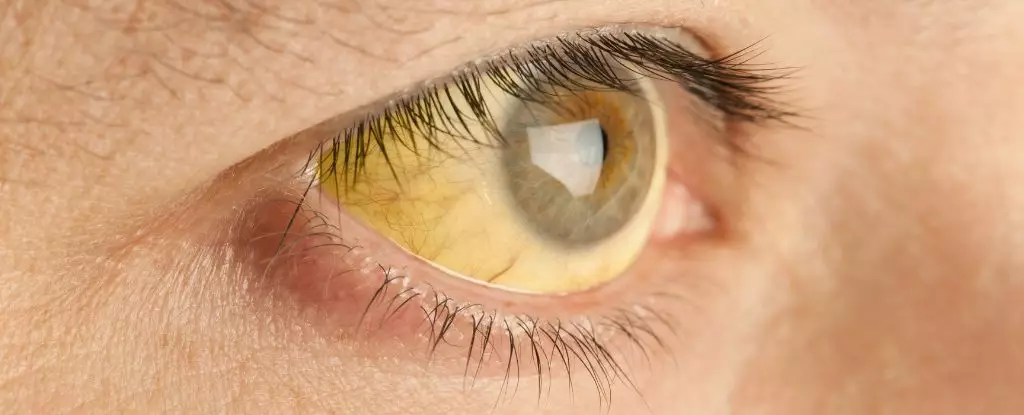In the arena of medical research, shifts in perspective can herald groundbreaking therapeutic strategies. Traditionally, bilirubin—the compound responsible for jaundice—has been labelled a mere waste product, synonymous with liver dysfunction and ominous health warnings. However, a transformative study has emerged from the depths of this complex biochemical landscape, revealing that bilirubin might not just be a byproduct of suffering, but a potential guardian in the fight against malaria. This re-evaluation of bilirubin’s role in human health is not just welcome; it is urgently needed. We find ourselves at a crossroads, where understanding bilirubin’s protective properties can lead us to new strategies in combating one of humanity’s most resilient foes.
Malaria: A Global Menace
The landscape of malaria is bleak, with over 260 million infections reported annually, primarily affecting those in tropical and subtropical regions. The disease wreaks havoc by unleashing the Plasmodium falciparum parasite into the bloodstream through the bite of an Anopheles mosquito. The toll it takes is staggering, as roughly 600,000 lives are claimed each year, predominantly among vulnerable populations. This microscopic enemy eludes the best defenses we have, leaving healthcare professionals scrambling for effective remedies. But now, as new insights emerge regarding bilirubin, we find a potential ally in this unlikely biochemical hero.
The Protective Power of Bilirubin
Findings from researchers at Johns Hopkins have upended conventional wisdom. In a study involving blood samples from infected individuals, it was noted that those who remained asymptomatic carried significantly higher levels of unconjugated bilirubin. This compelling observation suggests that bilirubin could indeed act as a protective shield, thwarting the marauding parasite while the host remains relatively unscathed. In effect, bilirubin emerges not as a mere nuisance, but rather as a formidable weapon against malaria, playing a pivotal role in host defense mechanisms.
Experimental findings from rodent models further illuminate this phenomenon. Mice engineered to be devoid of bilirubin succumbed effortlessly to malaria, with the parasite overwhelming their systems. Conversely, those equipped with bilirubin showed astonishing resilience, capable of surviving infections that should have been lethal. This striking duality hints at evolutionary adaptations that merit further investigation. What if bilirubin’s presence was once dismissed due to its association with health complications rather than being celebrated for its potential to thwart infections?
The Evolutionary Trade-offs of Defense Mechanisms
As enlightening as these findings are, they lead us to ponder the deeper implications of evolutionary biology. The protective role of bilirubin against malaria, while intriguing, embodies a significant trade-off—namely, the potential for complications like neonatal jaundice, which can result in neurological damage. This conundrum serves as a poignant reminder that nature does not provide panaceas; rather, it offers solutions steeped in complexity. The duality of bilirubin’s role warrants a nuanced discussion. Should healthcare advocates embrace bilirubin as a protective strategy against malaria, or should they remain vigilant about its potential pitfalls?
Nevertheless, it is this very tension that allows for dialogue in public health and medical research. The challenge lies in harnessing bilirubin’s protective capabilities for therapeutic benefit while navigating its associated risks. The real question emerging from this research is: How can we manipulate bilirubin’s pathways to maximize its benefits while mitigating any dangers?
A New Dawn in Malaria Research
Ultimately, the revelations surrounding bilirubin’s protective role against malaria illuminate a wider truth about medicine: our understanding is continually evolving. What was once deemed a detrimental waste product could inform a new approach to disease management, potentially unlocking avenues for innovative treatments that go beyond traditional interventions. This fresh perspective invites us to reevaluate existing paradigms, prompting us to seek solutions within our bodies’ own biochemical processes.
As research efforts continue to illuminate the intersection of biology and disease, it may very well be that bilirubin, a compound historically shrouded in negativity, paves the way for a malaria-free future. The prospect of leveraging this natural defense strategy not only reflects the beauty of scientific inquiry but stands as a beacon of hope against one of human civilization’s oldest and deadliest adversaries. The stage is set; it is time to usher bilirubin from the shadows and into the spotlight, where its true potential can finally be realized.


Leave a Reply